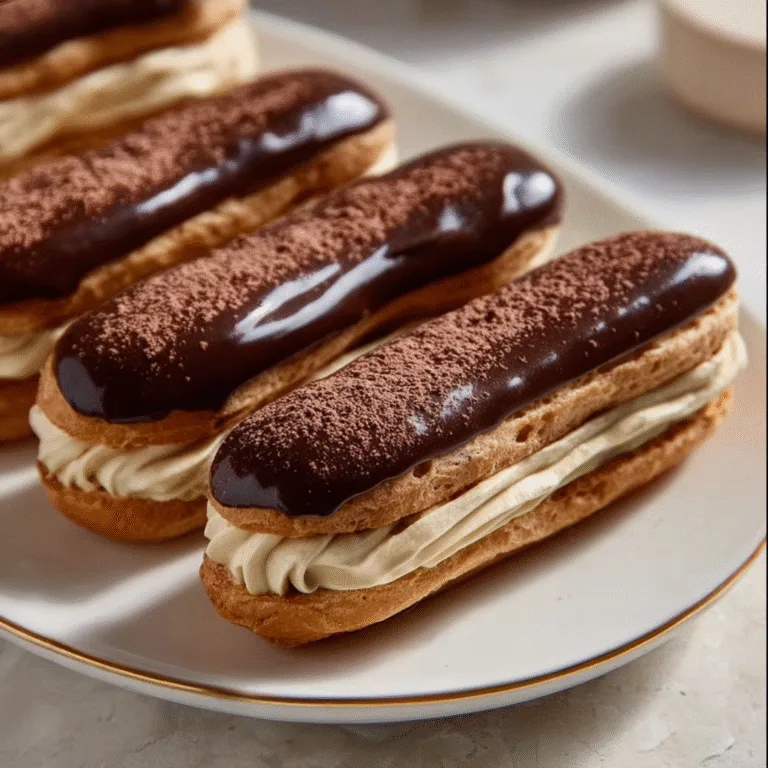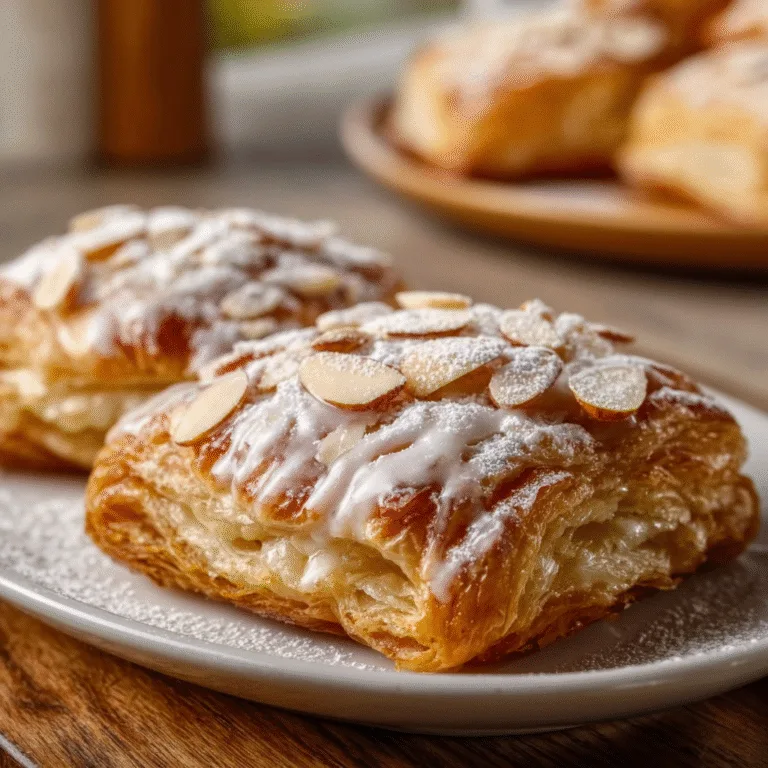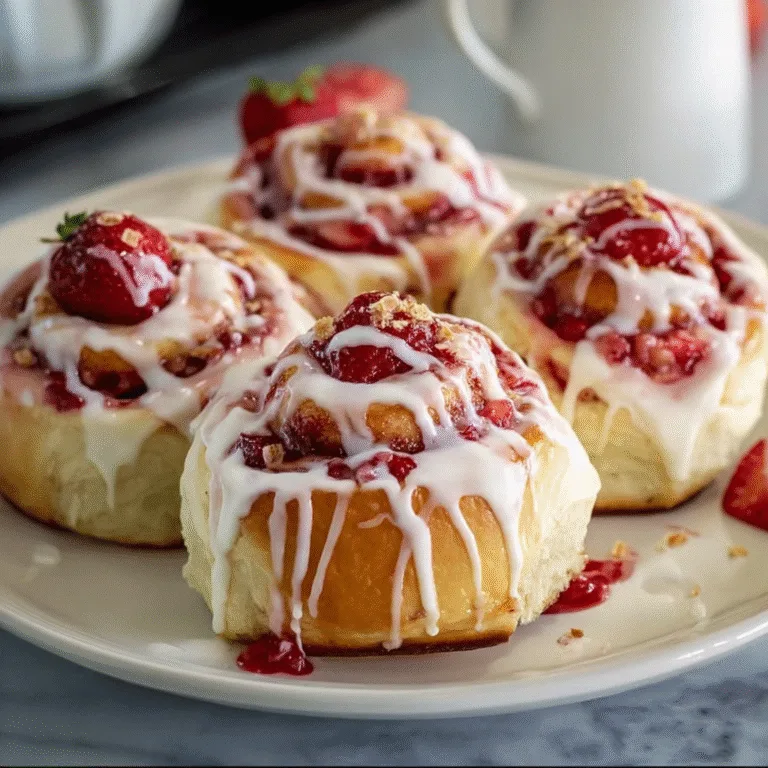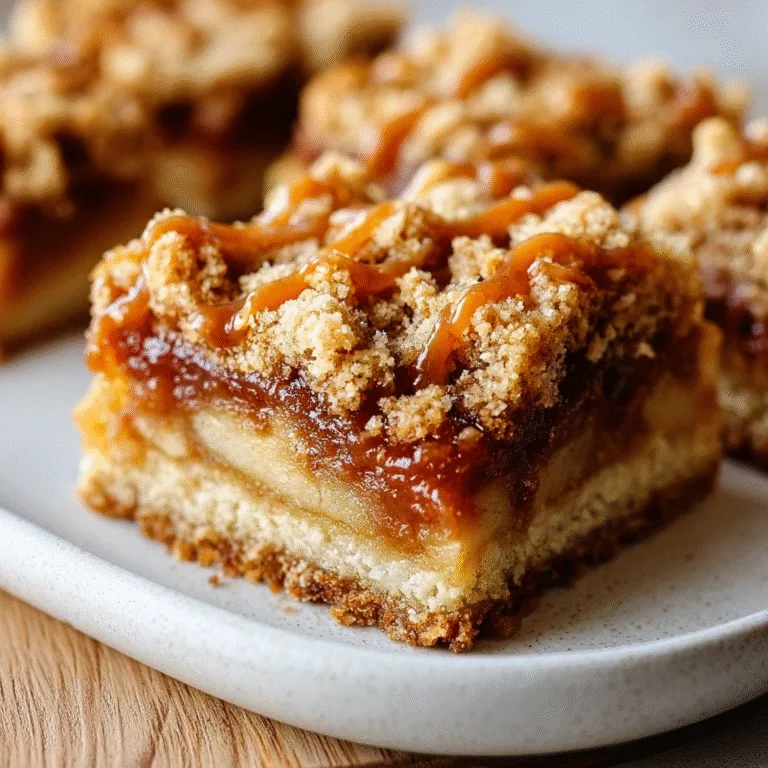The Best French Pastries: A Journey Through Flaky, Buttery Bliss
When you think of French cuisine, your mind probably drifts straight to pastries—the epitome of indulgence, elegance, and tradition. The French have turned the art of baking into something beyond sustenance; it’s a ritual, a heritage, and most importantly, a love language. From buttery croissants that shatter delicately with each bite to delicate mille-feuille layered with cream, French pastries are not just food—they are experiences.
In this article, we’ll explore the best French pastries to make at home. You’ll get a complete recipe featuring simple ingredients and step-by-step instructions, along with tips for perfecting the craft, serving ideas, and creative twists. Whether you’re baking for a brunch, an afternoon tea, or a dinner party, these pastries are guaranteed to make your table feel like a Parisian café.

Why French Pastries Are So Special
French pastries are more than sweet treats—they represent centuries of refinement. Paris became the epicenter of pastry innovation during the 17th century, and since then, classics like croissants, éclairs, macarons, and pain au chocolat have traveled the globe.
What sets them apart?
- Buttery Layers – Many French pastries rely on laminated dough, where butter and dough are folded repeatedly to create hundreds of flaky layers.
- Elegant Simplicity – Few ingredients—flour, butter, sugar, eggs—combine into something extraordinary.
- Texture & Balance – A good pastry is never one-note; it’s crisp yet tender, rich yet light, and often subtly sweet.
Must-Try French Pastries
Here are a few of the most beloved pastries you’ll find in a traditional boulangerie or pâtisserie:
- Croissants – Buttery, flaky, and golden.
- Pain au Chocolat – Croissants’ chocolate-filled cousin.
- Éclairs – Choux pastry filled with pastry cream and topped with chocolate.
- Macarons – Almond-based meringue cookies filled with ganache or buttercream.
- Mille-Feuille – Layers of puff pastry and pastry cream, topped with fondant.
- Madeleines – Shell-shaped sponge cakes with a delicate crumb.
But today, let’s dive into one recipe that captures the heart of French pastry culture—the Homemade Croissant, the crown jewel of breakfast tables.
Ingredients
- 4 cups all-purpose flour
- 1/2 cup granulated sugar
- 2 1/4 tsp active dry yeast
- 1 1/4 cup warm milk
- 1 tsp salt
- 1 cup unsalted butter (cold, for laminating)
- 1 egg (for egg wash)
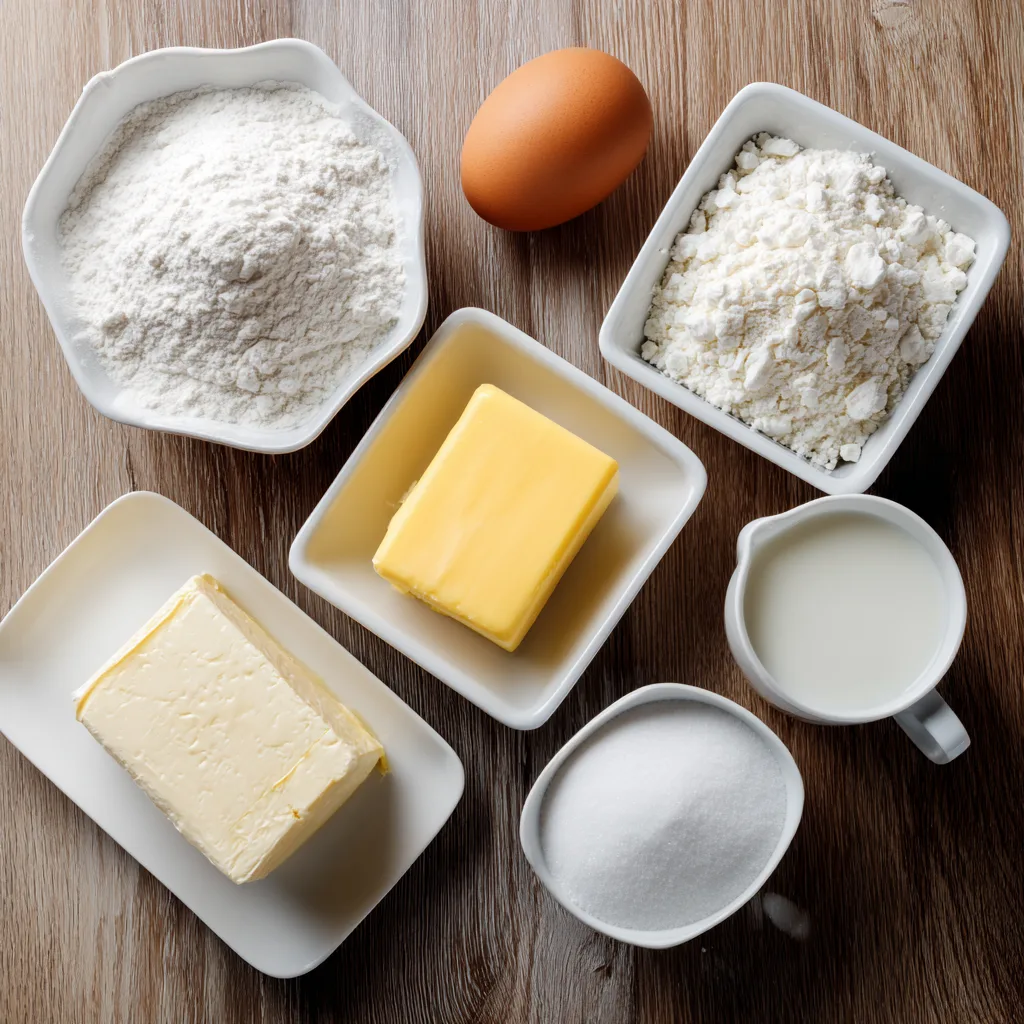
Instructions
- Activate the Yeast
Mix warm milk, sugar, and yeast in a bowl. Let sit for 5–10 minutes until foamy. - Make the Dough
Combine flour and salt in a large bowl. Add the yeast mixture and knead until a soft dough forms. Cover and refrigerate for 1 hour. - Prepare the Butter Block
Place cold butter between two sheets of parchment paper and pound/roll into a thin rectangle. Chill until firm but pliable. - Laminate the Dough
Roll the dough into a rectangle, place the butter block in the center, and fold the dough over it. Roll out, fold into thirds, and refrigerate for 30 minutes. Repeat the folding process 3 times. - Shape the Croissants
Roll dough into a large rectangle. Cut triangles, stretch them slightly, then roll from base to tip to form crescent shapes. Place on a baking sheet. - Proof the Pastries
Cover with a towel and let rise until puffy (about 1–2 hours). - Bake
Brush with egg wash and bake at 375°F (190°C) for 20–25 minutes until golden brown and flaky.

Serving Ideas
- Sweet Touch – Serve with jam, honey, or Nutella.
- Savory Twist – Add ham and cheese inside before baking for a croissant sandwich.
- Parisian Brunch – Pair with café au lait, fresh fruit, and a dusting of powdered sugar.
Tips for Perfect French Pastries
- Keep butter cold at all times—this ensures flaky layers.
- Don’t rush the proofing; a slow rise means better texture.
- Use a sharp knife when cutting the dough to avoid squishing layers.
Variations
- Chocolate Croissants – Insert a stick of dark chocolate before rolling.
- Almond Croissants – Fill with almond cream and top with sliced almonds.
- Mini Croissants – Make bite-sized versions for parties.
Conclusion
Learning how to make French pastries at home may seem intimidating, but with patience and practice, you’ll discover the joy of working with dough, butter, and creativity. The aroma of croissants baking in your kitchen is reason enough to try. And once you’ve mastered these, the world of éclairs, mille-feuille, and tarts awaits you.
So, put on some French café music, dust your counter with flour, and let your kitchen become your own little Parisian bakery.

Homemade French Croissants
Ingredients
Equipment
Method
- Mix warm milk, sugar, and yeast in a bowl. Let sit until foamy.
- Combine flour and salt in a bowl. Add yeast mixture and knead into soft dough. Refrigerate 1 hour.
- Pound cold butter into rectangle between parchment sheets. Chill.
- Roll dough, encase butter block, fold into thirds, and chill 30 minutes. Repeat folding 3 times.
- Roll dough, cut into triangles, and shape croissants. Place on baking sheet.
- Cover and proof 1–2 hours until puffy.
- Brush with egg wash and bake at 375°F (190°C) for 20–25 minutes until golden.


